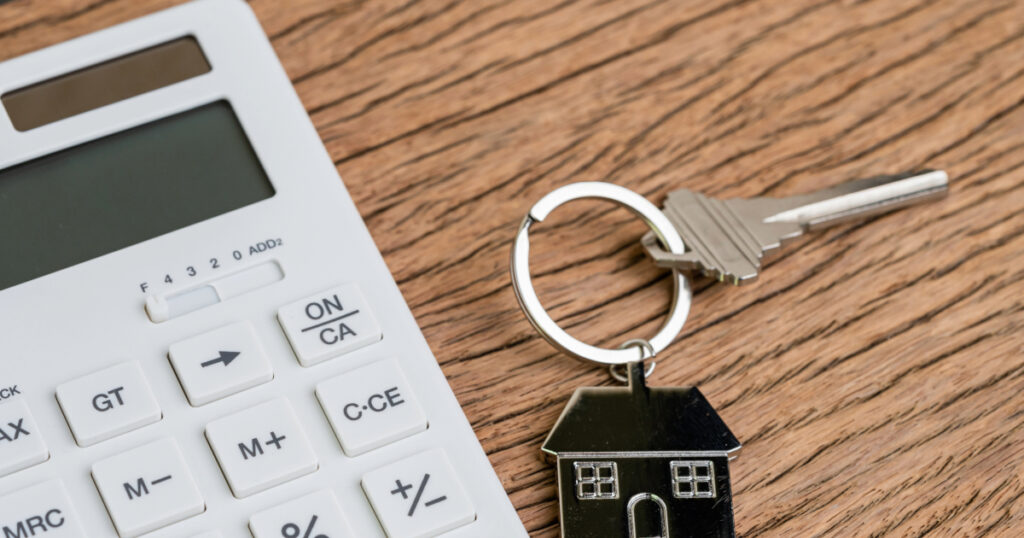What Mortgage Can I Afford?

Navigating the minefield of mortgage affordability can be frustrating, especially if you have never applied for a mortgage before or your income and circumstances have changed since you last applied. Affordability checks are a lenders way of stress testing your ability to repay the loan – all too often it leaves borrowers with one question, what mortgage can I afford?
Thankfully, there are ways you can ascertain how much you can borrow on a mortgage from using online mortgage calculators to enlisting the help of a mortgage broker. This guide outlines everything you need to know about mortgage affordability and helps you gauge how much you can borrow.
Let’s answer the question of what mortgage can I afford?
- How Do Lenders Calculate Mortgages?
- How Does My Salary Impact Mortgage Affordability?
- What Mortgage Can I Afford on a £20,000 Salary?
- What Mortgage Can I Afford on a £25,000 Salary?
- What Mortgage Can I Afford on a £30,000 Salary?
- What Mortgage Can I Afford on a £40,000 Salary?
- What Mortgage Can I Afford on a £50,000 Salary?
- What Mortgage Can I Afford on a £100,000 Salary?
- Other Factors that Impact Affordability
How Do Lenders Calculate Mortgages?
All lenders conduct affordability calculations and the amount you can borrow will vary wildly between each lender.
This is because each lender has a different method for deciding how much you can borrow. Some lenders allow multiple forms of income and government benefits, whereas others are extremely strict about what you can declare as income.
Lenders also examine your existing debts and will decide how much impact those debts have on your future borrowing capability.
Finally, each lender has their own threshold known as income multiples. These multiples range from 3.5 times your annual income all the way up to 6 times your income. The products for higher income multiples tend to be specialised mortgages and you may have additional hurdles to jump to obtain one.
Free phone and video consultations are provided in the U.K.
Get StartedHow Does My Salary Impact Mortgage Affordability?
In simplest terms, the amount you earn will dictate how much a lender is willing to lend to you.
All lenders operate according to their risk appetite. Some lenders are strict with a low tolerance to risk and extend low borrowing, while others are more relaxed and extend higher borrowing amounts.
If you are employed, demonstrating your income is straightforward and will normally be providing three months’ payslips. Occasionally a lender may request your employment contract, particularly if you have just started a new job.
For self-employed borrowers, the process of getting a mortgage gets more complicated as lenders evaluate self-employed income in drastically different ways. Some lenders will want your tax statements over multiple years and then use an average of those figures to calculate your affordability.
Fortunately, there are some lenders who will simply take your latest years’ tax statement as your income. If you have no accounts or have recently started trading, lenders stipulate you must wait to apply for a mortgage until you have at least one years’ trading.
See What Our Clients Have To Say
What Mortgage Can I Afford on a £20,000 Salary?
If you are on minimum wage, you may mistakenly believe a mortgage is impossible. The truth is that there are plenty of minimum wage borrowers each year and lenders are keen to assist you buy a home wherever possible.
There are also various government schemes and incentives to help you boost up your income or buy a cheaper home. It is well worth checking these out.
On a £20,000 salary you can typically expect to borrow up to £100,000. Some stricter lenders will allow you to borrow up to £90,000.
Most people with a £20,000 salary will search for properties in cheaper areas or apply for a mortgage on a joint basis to increase the total household income. For example, two applicants on minimum wage could borrow up to £200,000 which would be sufficient to buy a house in most parts of the UK.
What Mortgage Can I Afford on a £25,000 Salary?
If you earn £25,000 a year, you will be able to borrow up to £125,000 with some lenders. More risk-oriented lenders may set a maximum of £112,500.
As with earners in the £20,000 a year bracket, most borrowers at the £25,000 level will apply for a mortgage on a joint basis and make use of any government schemes available.
Two applicants earning £25,000 can borrow up to £250,000, making most parts of the UK available for a property purchase.
What Mortgage Can I Afford on a £30,000 Salary?
If you earn £30,000 a year you will typically be able to borrow up to £150,000. With some lenders this is limited to £135,000.
Invariably, this amount will not be sufficient to buy a property on your own except for a few places in the UK with very low property prices.
Once again, two applicants will be preferable on a mortgage application as it will significantly expand the areas you can buy a property in. Two borrowers will be able to borrow up to £300,000, making even some of the most expensive areas accessible for a property purchase.
What Mortgage Can I Afford on a £40,000 Salary?
For those earning £40,000 a year, you can typically borrow up to £200,000. Some lenders will restrict your borrowing to £180,000.
Borrowers in this bracket will be able to afford a property on their own in cheaper areas across the UK but may wish to add an additional borrower to broaden the scope of properties they can afford.
Two applicants earning £40,000 annually will be able to borrow up to £400,000, making properties in more expensive areas like the southeast accessible.
What Mortgage Can I Afford on a £50,000 Salary?
If your annual income is £50,000 you will typically be able to borrow up to £250,000. There are lenders who will limit your borrowing to £225,000.
You will be able to buy a house in most areas in the UK on your own with this salary however if you are looking to buy in places like London you will almost certainly need an extra applicant.
Two applicants earning £50,000 can borrow up to £500,000, a value that is suitable for buying some leasehold properties in London or a house on the outskirts of the city.
What Mortgage Can I Afford on a £100,000 Salary?
If you are fortunate enough to earn £100,000 a year, you will normally be able to borrow up to £500,000.
This income level is enough to buy property in even the most expensive areas of the UK.
Alternatively, you may wish to buy a larger property or land by having two applicants on the mortgage. Two applicants earning £100,000 will be able to borrow up to £1 million, putting all but the most expensive areas in London on your property shopping list.
Other Factors that Impact Affordability
Income is only one aspect of the affordability calculation, and each lender also evaluates your current financial situation and any debts you already have.
After the COVID 19 pandemic, lenders have also tightened up their stress testing for mortgages. To put this into perspective, some lenders that have a headline borrowing rate of up to 5 times your annual salary will often offer below this income multiple.
Existing Debt
Your existing debt commitments will be taken into account when your affordability calculation is created.
For example, a car finance agreement where you pay £300 a month will reduce your monthly budget and impact how much you can afford to repay on the mortgage.
Lenders ask if you intend to repay any outstanding debt as part of your mortgage application. The best way to prevent debt impacting your affordability is to repay it before you make your application.
Smaller debt obligations also impact your ability to borrow. Overdraft facilities, credit cards, payday loans, hire purchase agreements and personal loans can all subtract from your affordability calculation.
Child/Spousal Maintenance
Personal debt is one side of the coin in terms of negative impact on affordability calculations. The other side is any legal obligations you may have for spousal support or child maintenance.
A lender will almost always subtract any financial commitments made by the court system from your affordability calculation.
Speak to a Mortgage Expert
Ultimately, irrespective of your income and expenditure, you should be able to find a mortgage product if you are pragmatic and have realistic expectations.
For low earners it is not going to be possible to buy a detached house in London. Likewise for high earners with substantial borrowing or spousal support arrangements, you may need to consider a property that is cheaper in order to obtain a mortgage.
An experienced mortgage broker will be able to maximise your borrowing by matching you to the best lender for your circumstances.
Boon Brokers is a Whole of Market Mortgage, Insurance and Equity Release Broker. Boon Brokers provides fee free mortgage advice.
Book your initial mortgage consultation and find out how much you can borrow exactly with Boon Brokers today.
Gerard BoonB.A. (Hons), CeMAP, CeRER
Gerard is a co-founder and partner of Boon Brokers. Having studied many areas of financial services at the University of Leeds, and following completion of his CeMAP and CeRER qualifications, Gerard has acquired a vast knowledge of the mortgage, insurance and equity release industry.Related Articles
- What to Do if Your Mortgage is Declined Due to Affordability
- What Happens If You Can’t Afford a Remortgage?
- How Does an Overdraft Affect Getting a Mortgage?
- How Much Do I Need to Earn to Get a Mortgage of £250,000?
- Mortgage Calculator
- How Much Deposit Do You Need for a Mortgage?
- Can I Get A Mortgage For 5X My Salary?
- How Many Times Salary is a Mortgage Calculation?
- How to Get a Mortgage with a New Job








